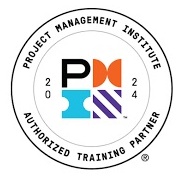Professional Business Analyst (PMI-PBA)®

 315 Google reviews
1143 students enrolled
315 Google reviews
1143 students enrolled
The PMI-PBA highlights your expertise in business analysis. It spotlights your ability to work effectively with stakeholders to define their business requirements, shape the output of projects and drive successful business outcomes. Performing business analysis on projects and programs allows organizations to implement desired changes and achieve strategic objectives.
The number of business analysis jobs is predicted to increase 19 percent by 2022, according to the U.S. Bureau of Labor Statistics This research indicates a growing need for skilled professionals
OUR ALUMNI
INSTRUCTOR LED TRAINING IN
| DATE | TIME | COURSE TYPE | PRICE |
|---|
|
No Training available |
||||
|---|---|---|---|---|
|
{{ training.From_Date }} - {{ training.To_Date }} {{ training.From_Date }} (1 Days) ({{ training.Training_Week_Type }}) ({{ training.DCount }} Days) ({{ training.Training_Week_Type }}) |
{{ training.From_Time }} - {{ training.To_Time }} |
{{ training.Currency_Type }} {{ training.Price }}.00
{{ training.Currency_Type }} {{ training.Offer_Price }}.00 valid till: {{ training.Valid_Date }} |
ENROLL NOW ENROLL NOW | |
| View More Batches View Less | ||||
Can't find convenient schedule? Let Us Know
DESCRIPTION
This Online Training Course on PMI Professional in Business Analysis (PMI-PBA)® Certification covers all the domains and tasks along with examination tips and tricks, designed and delivered by a leading project management trainer & coach with over 30 years training experience.
With its emphasis on requirements management, business analysis has become a competency of critical importance to project management. Becoming certified as a business analysis (BA) expert can move your career in a fresh direction while opportunities for BAs are on the rise.If you work with stakeholders in defining requirements, shaping project outputs and driving intended business outcomes, the PMI Professional in Business Analysis (PMI-PBA)® will spotlight your valuable skills.
The PMI Professional in Business Analysis (PMI-PBA) and the PMI Registered Education Provider logo are the registered marks of the Project Management Institute, Inc.
Who should attend?
If you work with project teams and manage requirements or product development, or if you’re a project or program manager who performs business analysis in your role, then the PMI-PBA® certification is right for you.
PMI-PBA Training is designed to help you succeed on your first exam attempt. During each of the five domains identified in the PMI-PBA® Examination Content Outline, you will be continuously exposed to review questions to reinforce the information reviewed during the lecture and discussion portions. These review questions are comparable to the types of questions you will experience on the actual exam. This course has aligned the forty Knowledge and Skills within the five Domains to help you understand how they interrelate.
1. Introduction: Identifying Key Requirements Management Definitions
The field of business analysis is rich with terms, concepts, tools, techniques, and processes. This beginning section sets the foundation of key terms to know in order to prepare you for the five domain areas and forty knowledge and skills areas that are part of the exam:
- What is Business Analysis?
- What are the Roles of the Business Analyst?
- The Requirements Management Process
- Project Methodologies
- PMI's Code of Ethics
In the Introduction section you will gain skills from the following Knowledge Areas:
- Leadership principles and skills
- Project methodologies and how they impact requirements and business analysis practices
- Requirements types
- Systems thinking
Class Exercise: In this exercise participants will recognize and review key requirements management terms in order to understand the foundations of the business analysis profession.
2. Needs Assessment
The first domain of the exam is where people begin their requirements process and the activities that lead to project success. Emphasis is placed on the processes used to define the business problem or opportunity. The Needs Assessment Domain encompasses 18 percent of the exam. In this section we review how to effectively perform these five tasks:
- Defining Business Problems or Opportunities
- Developing a Solutions Scope Statement or Business Case
- Determining the Business Problem or Opportunity Value
- Identifying Business Needs
- Identifying Stakeholders and Stakeholder Values
In the Needs Assessment section you will gain skills from the following Knowledge Areas:
- Political and cultural awareness
- Problem solving and opportunity identification tools and techniques
- Stakeholder analysis
- Valuation techniques
Individual and Class Exercise: In this exercise participants will review questions individually to reinforce the information reviewed during the Needs Assessment Domain, followed by discussions with the instructor and other class participants regarding the most correct responses.
3. Planning
In the Planning Domain your focus will shift to putting the proper requirements management activities in order. The person performing business analysis work will determine which tools, techniques, policies, or procedures are necessary to prepare the requirements management plan. The Planning Domain includes 22 percent of the exam. Attention is also given to planning for traceability, managing changes, controlling documents, and identifying acceptance criteria. In this section we cover these six planning tasks:
- Determining Business Analysis Activities
- Establishing Requirements Traceability
- Preparing the Requirements Management Plan
- Defining Requirements Change Control and Communication Processes
- Identifying Document Control Processes
- Specifying Business Metrics and Defining Acceptance Criteria
In the Planning section you will gain skills from the following Knowledge Areas:
- Collaboration tools and techniques
- Contingency planning
- Development methodologies
- Documentation management tools and techniques
- Elements of a requirements management plan
- Estimating tools and techniques
- Measurement tools and techniques
- Planning tools and techniques
- Quality management
- Scheduling tools and techniques
- Version control tools and techniques
Individual and Class Exercise: In this exercise participants will review questions individually to reinforce the information reviewed during the Planning Domain, followed by discussions with the instructor and other class participants regarding the most correct responses.
4. Analysis
Analysis of the requirements involves eliciting requirements from stakeholders and making sense of what has been revealed. This domain includes performing the following requirements activities: eliciting, analyzing, decomposing, accepting, approving, specifying, and validating. The Analysis domain contains 35 percent of the exam. In this section we'll cover the following eight tasks:
- Eliciting and Identifying Requirements
- Analyzing, Decomposing, and Elaborating Requirements
- Evaluating Options and Decision-Making
- Allocating Requirements and Creating a Requirements Baseline
- Facilitating Stakeholder Consensus in order to Obtain Sign-off
- Creating Requirements Specifications
- Validating Requirements with Stakeholders
- Elaborating and Specifying Detailed Business Metrics and Detailed Acceptance Criteria
In the Analysis section you will gain skills from the following Knowledge Areas:
- Analytic tools and techniques
- Business rule analysis tools and techniques
- Data analysis tools and techniques
- Decision making tools and techniques
- Elicitation tools and techniques
- Facilitation tools and techniques
- Interface analysis
- Negotiation tools and techniques
- Prioritization tools and techniques
- Process analysis tools and techniques
- Root cause analysis
Individual and Class Exercise: In this exercise participants will review questions individually to reinforce the information reviewed during the Analysis Domain, followed by discussions with the instructor and other class participants regarding the most correct responses.
5. Traceability and Monitoring
Identifying the status of requirements throughout the lifecycle of the project and communicating critical information related to requirements is an important factor for project success. This domain is concerned about managing, examining, and sharing requirements information with the project stakeholders. The Traceability and Monitoring Domain comprises 15 percent of the exam. This domain includes the following five tasks:
- Tracking the Status, Sources, and Relationships of Requirements
- Monitoring the Lifecycle of Requirements
- Updating the Status of Requirements and Communicating Requirements States to Stakeholders
- Using Communication Methods to Share Important Requirements Information and Status with Stakeholders
- Determining and Managing Change Impacts to the Requirements
In the Traceability and Monitoring section you will gain skills from the following Knowledge Areas:
- Backlog management
- Change control tools and techniques
- Communication skills, techniques, and tools
- Conflict management and resolution tools and techniques
- Organization assessment
- Reporting tools and techniques
- Requirements traceability tools and techniques
Individual and Class Exercise: In this exercise participants will review questions individually to reinforce the information reviewed during the Traceability and Monitoring Domain, followed by discussions with the instructor and other class participants regarding the most correct responses.
6. Evaluation
The final domain topic examines if the delivered solution achieves the business need and satisfies the requirements. These activities could include solution testing, gaps analysis, and final sign-off. The Evaluation Domain comprises 10 percent of the exam. In this section we will explore the following four tasks:
- Comparing Solutions Test Results to Defined Requirements Acceptance Criteria
- Analyzing, Communicating, and Resolving Solution Gap Analysis
- Obtaining Stakeholder Sign-off and Moving Toward Deployment
- Measuring How Well the Solution Met Business Needs and Values
In the Evaluation section you will gain skills from the following Knowledge Areas:
- Lessons learned and retrospectives
- Validation tools and techniques
- Valuation tools and techniques
- Verification methods and techniques
Individual and Class Exercise: In this exercise participants will review questions individually to reinforce the information reviewed during the Evaluation Domain, followed by discussions with the instructor and other class participants regarding the most correct responses.
7. What to Expect on the Exam
Now that you know the content expectations for the exam it's important to realize how to prepare for the exam and what to expect as you go through the application process. To ensure you successfully pass the first time, this section will cover:
- The PMI Professional in Business Analysis (PMI-PBA®)SM Application Process
- Exam Requirements
- Exam Overview
- Preparing for the Exam
- Understanding the Questions
- Taking the Exam
- General Tips to Help You Through the Process
- Final Practice Exam
Individual Exercise: In this exercise participants will take a portion of the final practice exam to determine specific areas of additional review and practice, as well as areas of strength. The final practice exam will be timed to simulate the actual exam. A review of correct responses and discussion will conclude this exercise.
Secondary degree (high school diploma, associate’s degree or
7,500 hours of business analysis experience
2,000 hours working on project teams*
35 contact hours of education in business analysis
OR
Bachelor’s degree or the global equivalent
4,500 hours of business analysis experience
2,000 hours working on project teams*
35 contact hours of education in business analysis
*Project experience can include your business analysis experience. A current PMP® or PgMP® will satisfy this requirement but is not required for the PMI-PBA.
.png) Project Management
Project Management Agile and Scrum
Agile and Scrum Business Management
Business Management Technical Training
Technical Training Quality Management
Quality Management













